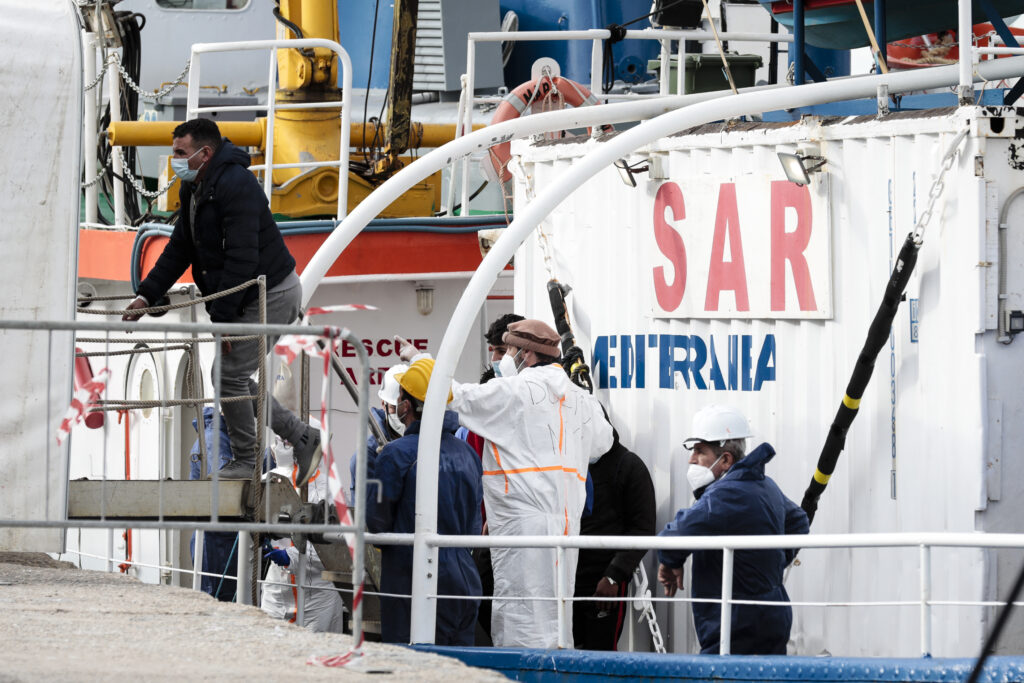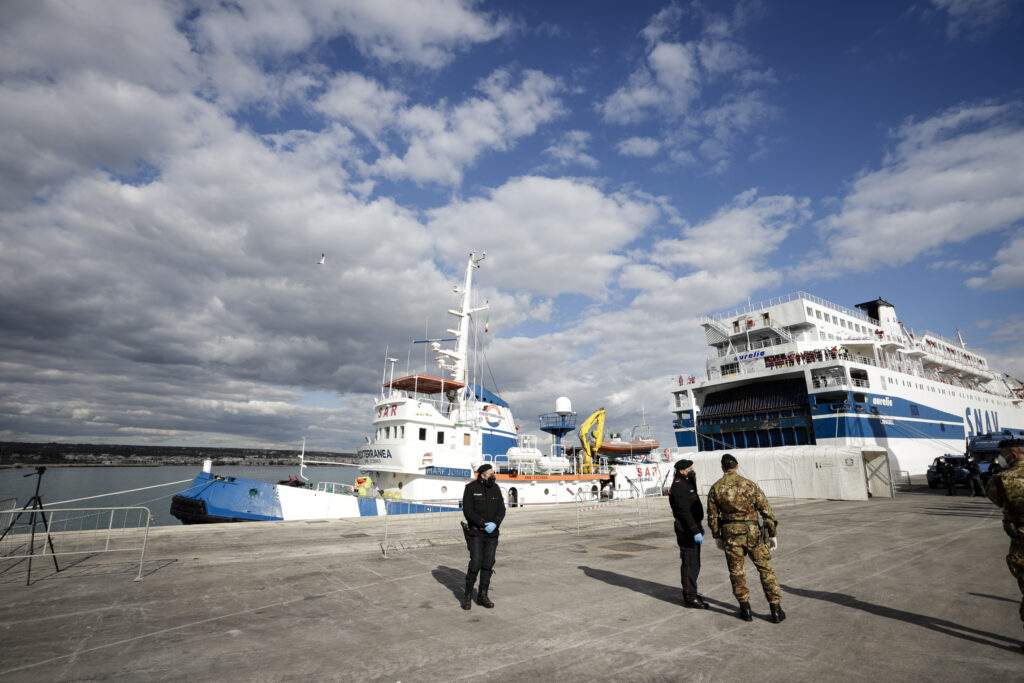After a stopover in Lampedusa imposed by the bad weather, we reached the Libyan SAR zone, where the civil fleet ships Louise Michel and Geo Barents were already located, at 6.10am on Wednesday 19 January.
It was the first day with relatively good weather conditions after weeks of gales and, immediately, reports began to arrive - first thanks to the extraordinary work of Alarm Phone, then with the aerial observation of Hummingbird 2 - of boats in difficulty, to which the competent authorities were not responding or which were at risk of interception and capture by the so-called Libyan coastguard.
On the night between 19 and Thursday 20 January, we spotted the first of these boats. And - after a complicated and difficult rescue operation - we rescued over a hundred people. In fact, once we reached the vessel in the dark, our team realised that the boat, made of wood, overcrowded and adrift with failing engines, was already taking on water and starting to sink. Some people had already fallen overboard and had to be rescued from the water. Dozens were crammed under the deck, at risk of crushing and suffocation. After four hours, they were all safely transferred on board the MARE JONIO.
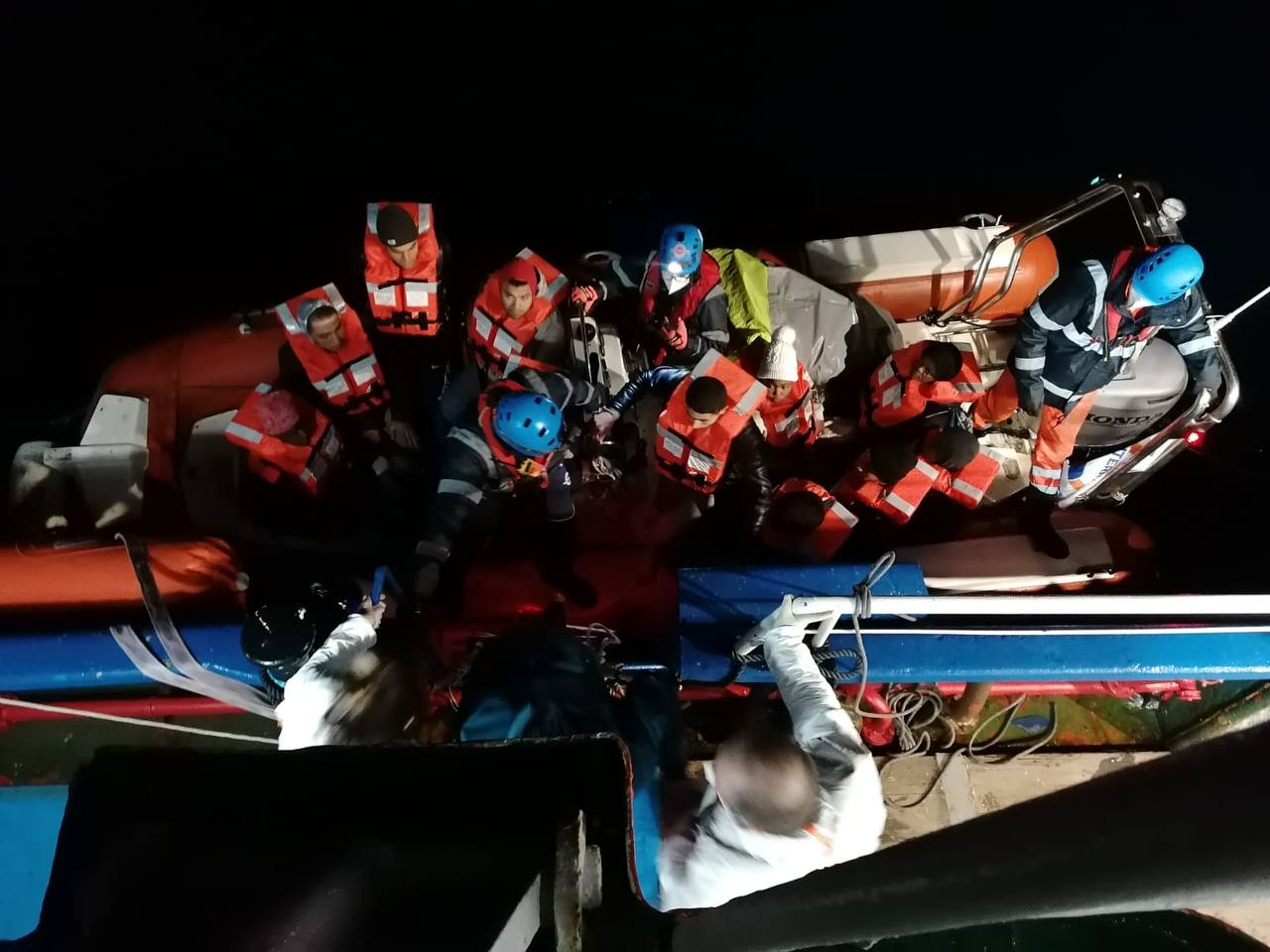
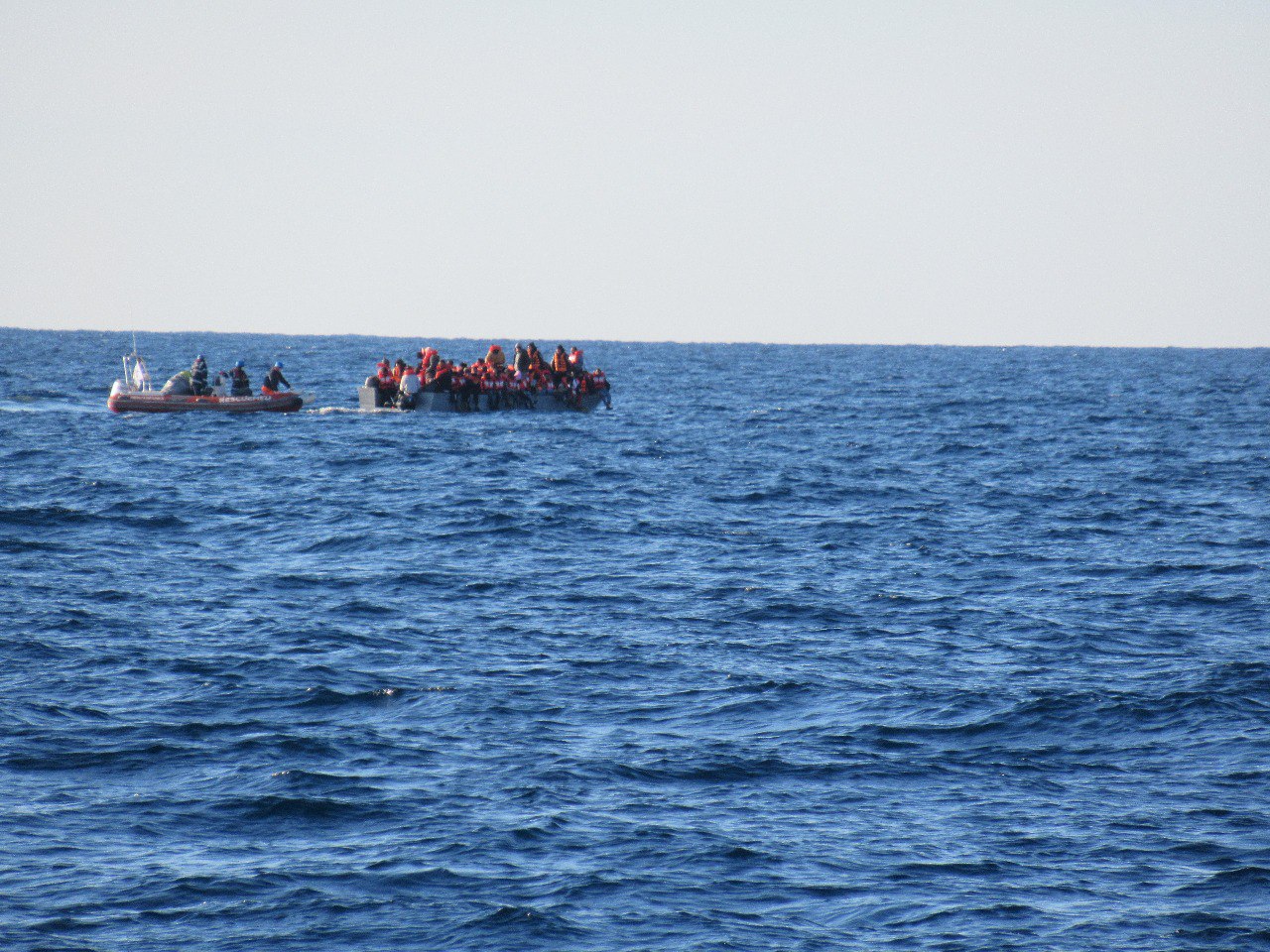
But in the meantime, around 4 a.m. a second SOS arrived from Alarm Phone: about ten miles away was a second boat in distress. Again it was a wooden boat with over a hundred people on board. Among them were many women and children, two of them less than a year old. At 11.25 a.m. on 20 January, we also concluded this second rescue operation, taking all the shipwrecked people on board the MARE JONIO.
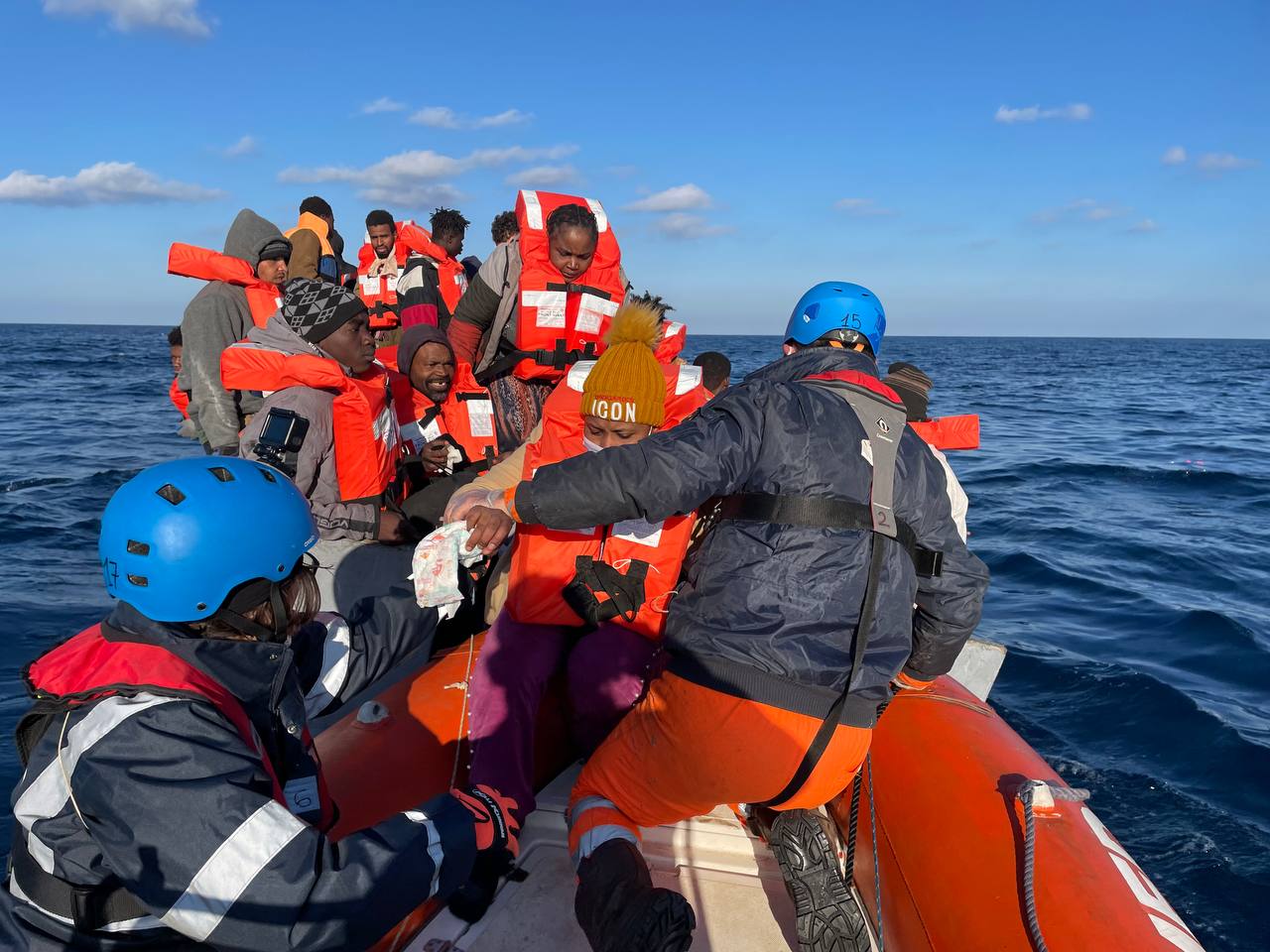
During the two rescue operations, we rescued a total of 214 people.
The most beautiful moment was when brothers and friends, who had been separated on board the two different boats and feared for each other's fate, were able to embrace each other again on board the MARE JONIO, in an incredible explosion of joy.
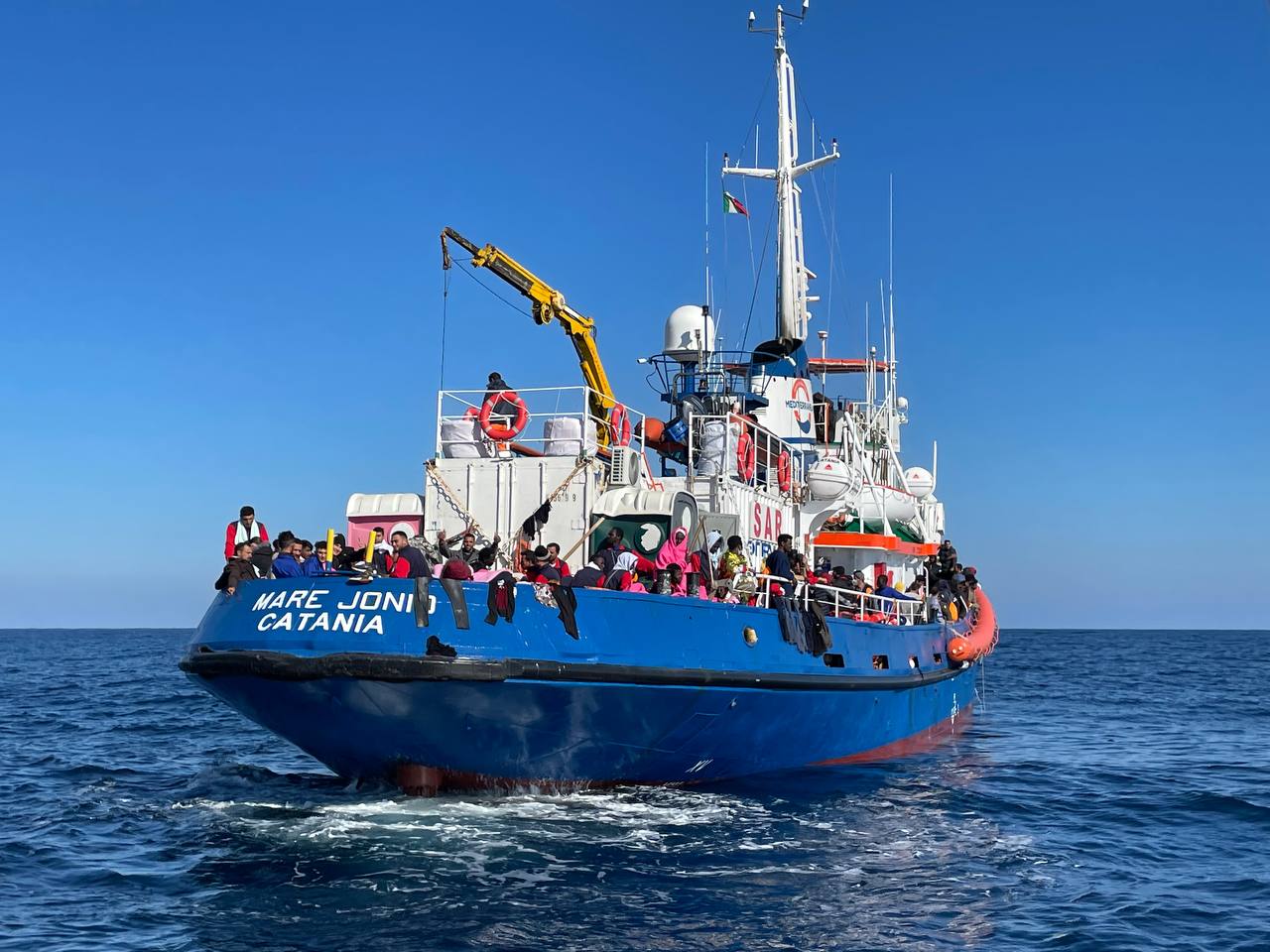
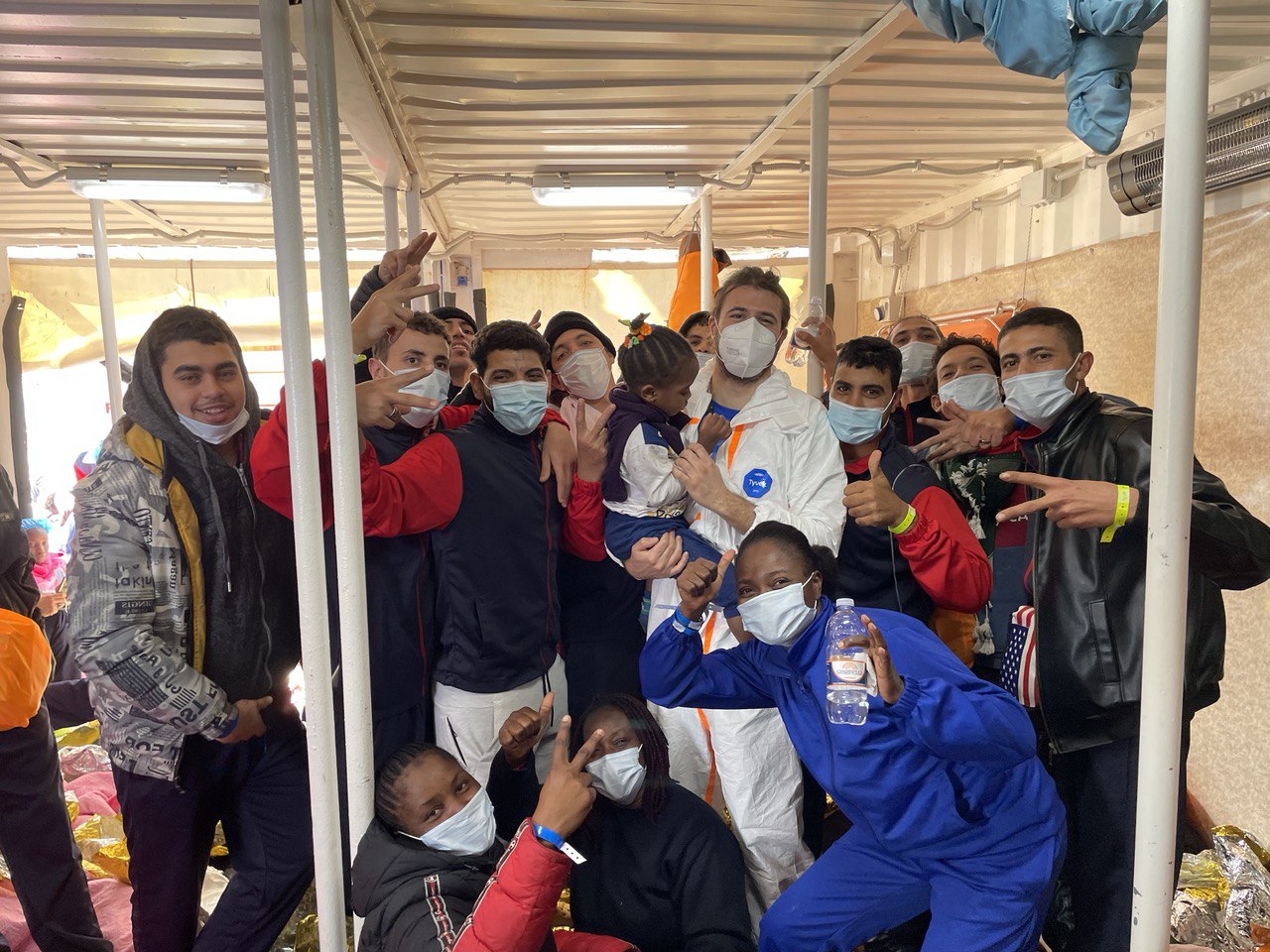
Many of the people, meanwhile, presented, due to the more than thirty hours spent adrift at sea, serious problems of hypothermia, burns on their skin caused by contact with petrol and salt water, and, on their bodies, signs of the violence they had suffered in the detention camps in Libya, in which most of them had spent the last few months.
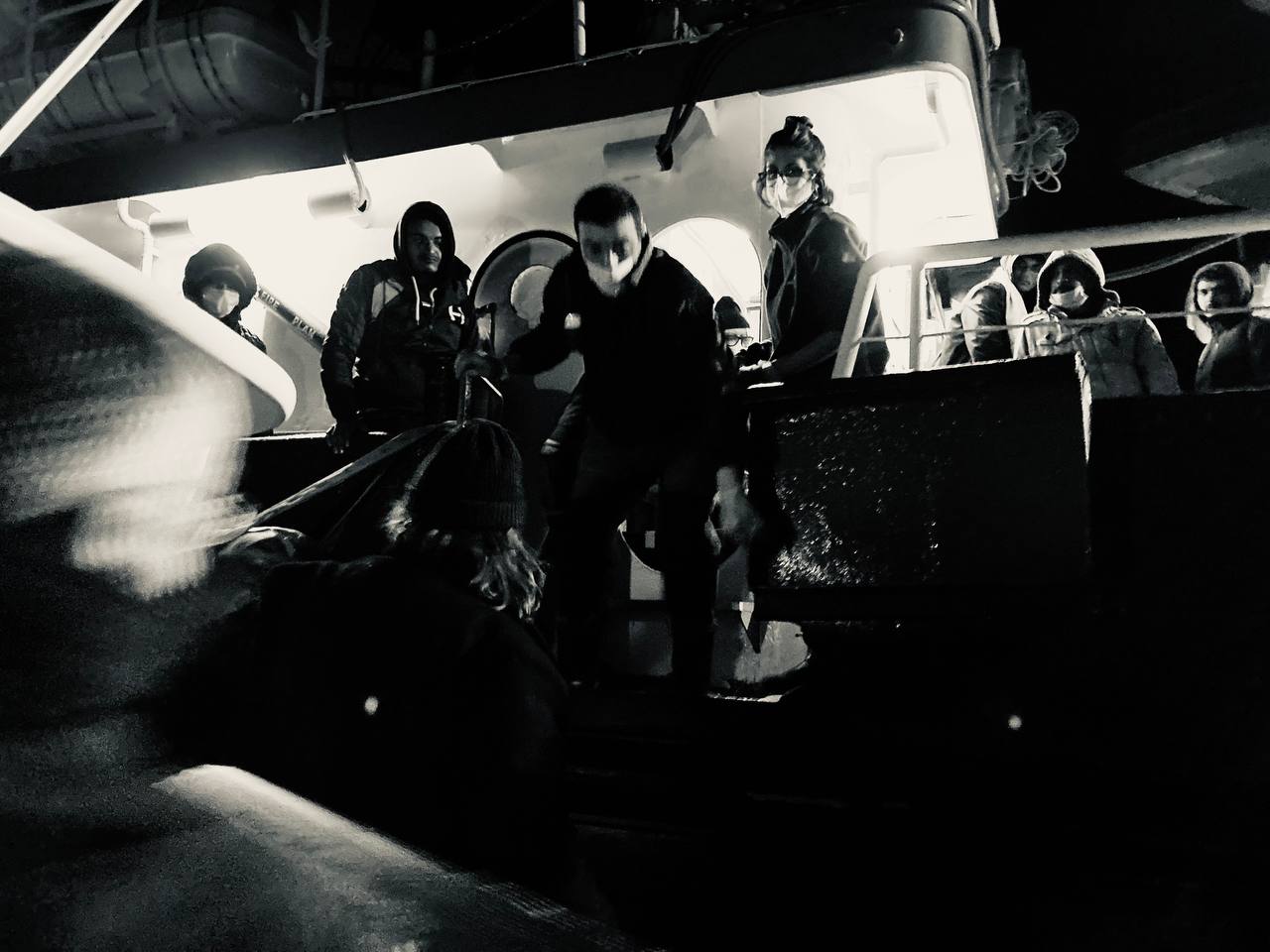
We immediately set course northwards and, faced with the omissions and silence of the Maltese authorities, we requested the Maritime Rescue Coordination Centre (IT MRCC) in Rome to assign the nearest port - the Place of Safety under international law - where the survivors could disembark safely.
In the late afternoon of 20 January, we reached the island of Lampedusa, anchored close to its shores, awaiting the assignment of the safe port of disembarkation. On board the MARE JONIO, which had never before received such a large number of people, conditions were complex: while we provided them with all necessary assistance, the survivors occupied every available space on the ship's deck.
After the first night spent on board, on the recommendation of our doctor, on the morning of Friday 21 January, a medical evacuation (MEDEVAC) was requested and immediately obtained for two men with particularly serious illnesses, who were taken by a patrol boat of the Italian Coast Guard and admitted to the Lampedusa hospital.
In the afternoon, the authorities informed us of the assignment of Pozzallo - 120 nautical miles to the northeast - as the 'destination port' for the disembarkation of the shipwrecked people. From the ship's command we immediately replied that it would not be possible to safely face a twelve-hour crossing of the Strait of Sicily, in worsening weather conditions, with over two hundred people on board.
For this reason - although we were aware of the situation of great pressure on Lampedusa and the island's reception facilities, after the autonomous arrivals and rescues carried out by the Italian Coast Guard of hundreds of people in recent days - we reiterated our request for the immediate disembarkation of at least the children and minors, their families, and people suffering from the most serious pathologies.
While waiting for a response, the crew prepared to spend a second night on board an overcrowded ship. MEDITERRANEAN activists who were in Lampedusa, in agreement with the harbourmaster, then reached the MARE JONIO in the evening to supply hot meals, water and blankets to the people on board.
At 11.30 p.m., the announcement arrived from the Harbour Master's Office that permission had been granted to tranship the 142 most vulnerable people onto a Coast Guard patrol boat, and that the operation would take place the following morning.
Thus, at around 9am on Saturday 22 January, the first 142 people were disembarked at Molo Favaloro and immediately taken to the Lampedusa hotspot. At this point, once the weather conditions improved, the MARE JONIO could set course for Sicily. And here, at the port of Pozzallo, at 15:09 on Sunday 23 January, disembarkation operations were finally concluded for the 70 people still remaining on board.
An hour later, we received confirmation of the negative results of all the Covid-19 tests for all the surviving guests and crew.
Once the spaces of the ship had been disinfected, on the evening of Monday 24 January we were able to set course for Mazara del Vallo, where the MARE JONIO will stop for the crew changeover and supplies needed to prepare for our next Mission #11.
With the joy of having snatched 214 human lives from the suffering of Libya and the risk of death at sea, with grief at the news of the latest announced tragedy in the Mediterranean Sea during the night between last Monday and Tuesday, with the awareness that we must return as soon as possible to where we need to be, with the solidarity and support of all and sundry.
